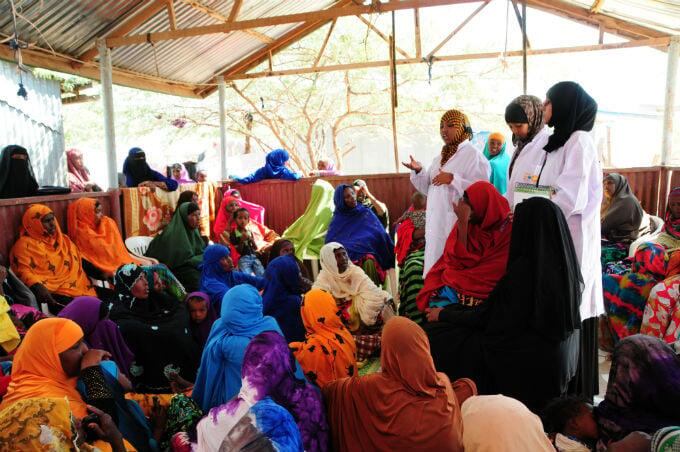Somalia now has a pool of qualified trainers in the Clinical Management of Rape (CMR). The pool of 26 trainers is currently in the process of strengthening the capacities of other CMR service providers.
The CMR task force, chaired by UNFPA and comprising of other UN agencies and NGOs working in Somalia, took a lead to conduct a training of trainers for CMR in February and March this year. The training aimed to harmonise CMR training in Somalia, build the capacity of government officials and service providers in providing quality CMR response, have a pool of trainers doing CMR training in the future and to build the capacity of trainees on CMR protocol.
UNFPA Somalia gender specialist Isatu Sesay-Bayoh explained that the content of the CMR training covers legal, psychosocial, medical and involvement of communities for better collaboration for the help of survivors.
“This training also intended to roll out the CMR protocol, endorsed by the Ministries of Health in three zones in December 2015,” said Sesay-Bayoh.
She said the training has led to CMR service provision to be fully integrated in the service mapping and standard operating procedures (SOPs) developed by the field GBV sub-clusters, and CMR service providers to refer to the service mapping and SOPs to ensure functioning of multi-sectoral referral system.
Gender-Based Violence (GBV) is one of the serious human rights violations taking place in Somalia. According to the GBV Working Group Bulletin, there were about 9,582 reported GBV cases in the South Central, Puntland and Somaliland in 2015. Rape is the second most commonly reported type of GBV, which accounts for 19 percent of the total GBV cases, and sexual assaults accounts for 15 percent.
“Given the immediate, as well as long-term negative effects of rape and sexual assaults, medical response as a live-saving measure, is very critical. In fact, CMR is a fundamental component of the comprehensive response needed by survivors of sexual violence,” said Sesay-Bayoh.
The protracted humanitarian crisis situation over the past 20 years has resulted in the collapse of the health sector and a subsequent focus on emergency response interventions to ongoing and recurrent crises. As such, a number of low impact parallel and fragmented systems and structures for health care exist. In this generally constrained environment, medical personnel are neither trained in CMR nor the provision of post-rape treatment drugs.
The situation analysis indicated the current practice, where organizations were providing ad-hoc CMR trainings to health staff using different manuals and conducted by certified and non-certified trainers. There is no systematic follow-up and mentoring of those trained on CMR. This might compromise the quality of CMR services provided to the survivors. Thus, there is an urgent need of establishing systematic, standardised and well-trained pool of individual to do further training. The CMR training conducted as well as endorsement and implementation of CMR protocol are a step forward towards this.


